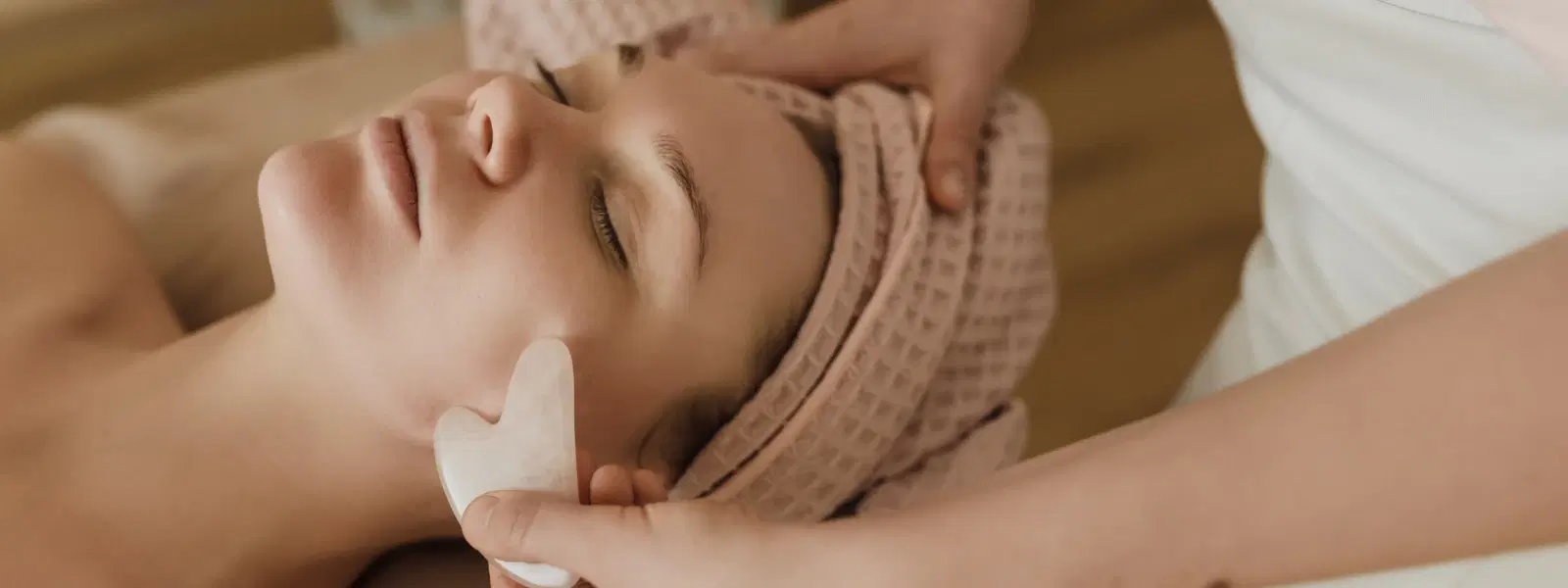
Beauty & Skincare
•03 min read
-9872eb55-9af0-4022-8644-bd8f05e8333e.png&w=3840&q=75)
Beauty and skincare advice is everywhere, but not every piece of advice is true. Many methods, ingredients, and routines are based on common beauty myths that can mislead even the savviest enthusiasts. In this post, we will separate fact from fiction and show you how to build a skincare routine based on reliable skin health facts. You will learn why many popular beauty beliefs are simply misconceptions and how you can enjoy natural skincare truths every day.
Beauty myths are widespread ideas that have grown from outdated information, catchy marketing, or cultural traditions. These common beauty myths and skincare misconceptions spread through social media influencers who share unverified tips, misleading product advertisements, and advice passed through families. When these myths shape your beauty routine, they can lead to wasted money and even harm your skin. It is important to rely on science and trusted advice to steer clear of beauty product myths that do little to help your skin truly shine.
Let’s look at some of the common beauty myths that often confuse many. One popular myth is that natural skincare products are always better for your skin. The fact is that not all natural ingredients benefit every skin type. Even natural products can irritate sensitive skin, while many synthetic compounds are designed to be safe and effective. Another common belief is that drinking more water cures dry skin. Hydration matters, but dry skin often comes from external factors such as air quality or improper moisturizing. A good moisturizer is key. Many people also think you don’t need sunscreen on cloudy days or if you have dark skin. The truth is that UV rays affect all skin types, even on overcast days. And finally, the myth that expensive beauty products always work better than affordable ones is just a myth. Often, affordable products contain the same active ingredients and are just as effective, providing smart beauty routine tips without breaking the bank.
There are many beliefs about skincare ingredients that can confuse your choices. One common myth is that chemical-free skincare is always better. Keep in mind that everything is made of chemicals, including water. The term 'chemical-free' is misleading since many synthetic ingredients offer safe, proven benefits for your skin. Another myth is that you should feel a tingling sensation for products to work. In fact, tingling often indicates irritation rather than effectiveness. Your skin should feel soothed by products, not uncomfortable. Additionally, coconut oil is often considered a universal moisturizer, but it can clog pores for some, especially those with acne-prone skin. Lastly, many believe that anti-aging products only work once you reach a certain age. In reality, early prevention helps protect your skin from environmental stressors and boosts collagen production over time.
-5ba1f1f6-995b-4617-a1ff-43890351cff7.png&w=3840&q=75)
Misconceptions also extend into the makeup world. For example, the idea that sleeping in your makeup every now and then is harmless is a dangerous beauty myth. Even one night can clog pores and lead to breakouts, speeding up skin aging. Another myth is that using makeup regularly will age your skin faster. Makeup itself is not to blame; the real issue is when proper cleansing and skincare routines are neglected. Finally, some claim that you can permanently shrink your pores. In truth, pores can only appear smaller with the help of exfoliants and retinoids, but they do not permanently shrink. Understanding these makeup myths and facts can help you maintain a clean, healthy look every day.
Create a skincare routine based on reliable skin health facts by identifying and avoiding common skincare misconceptions. Start by researching product ingredients and choosing formulations that come with dermatology-backed studies. Ignore trendy buzzwords like 'chemical-free' and focus on evidence-based claims. Combine natural skincare truths, like using ingredients such as aloe vera and niacinamide, with effective synthetic actives like retinol and hyaluronic acid. Remember that consistency is key. A balanced routine featuring proper cleansing, moisturizing, and daily sun protection will help you maintain your skin’s health over the long term. Do not over-exfoliate or use harsh scrubs that damage your skin barrier. Follow these practical beauty routine tips to enjoy sustainable results and a radiant look.
Insight Corner: Your Skin Deserves Science, Not Myths
Did you know? Many beauty myths persist because they sound logical, even though they have no scientific proof. For instance, using toothpaste on acne is a common myth that can cause more harm than good. It is best to trust dermatology-backed advice for genuine skin care benefits.
Some well-known myths include the idea that extra water cures dry skin, natural products are always better, and that sunscreen is unnecessary on cloudy days.

Not necessarily. Many affordable products have active ingredients that work just as well as those found in luxury items.
No, pores cannot be permanently shrunk; products like exfoliants and retinoids can only help minimize their appearance.
Usually not. A tingling sensation may signal irritation, indicating that a product might not be right for your skin type.
Yes, everyone should use sunscreen daily, as UV rays affect all skin tones equally.
Separating beauty myths from skincare facts is an important step towards a healthier, more radiant skin. By debunking common beauty product myths and trusting science-backed skincare facts, you can build a routine that truly benefits your skin. Embrace a balanced approach to beauty that values both natural skincare truths and innovative remedies. Remember, your skin deserves care based on evidence, not old myths, and a consistent routine can transform your daily self-care into a powerful statement of self-expression and style.